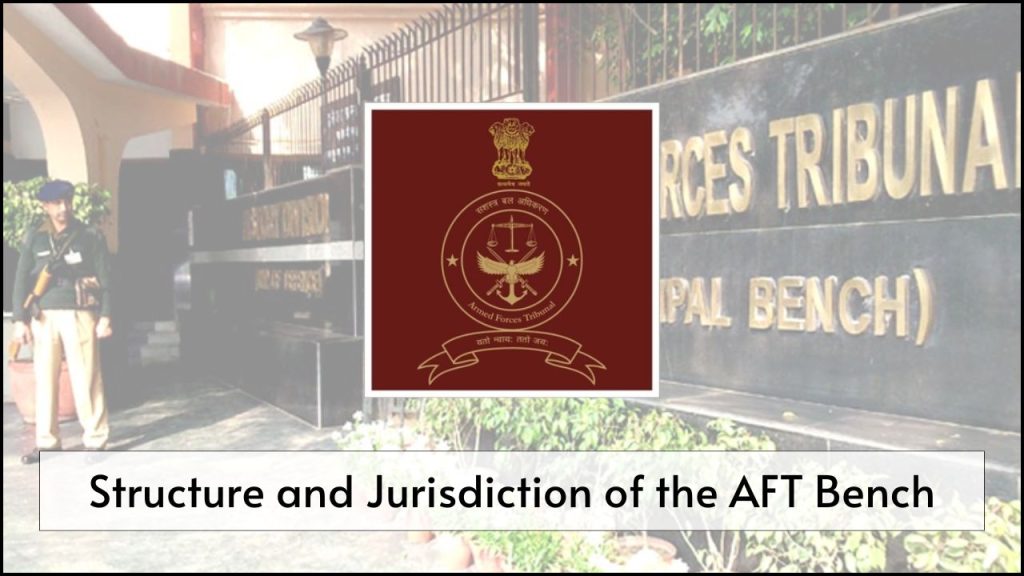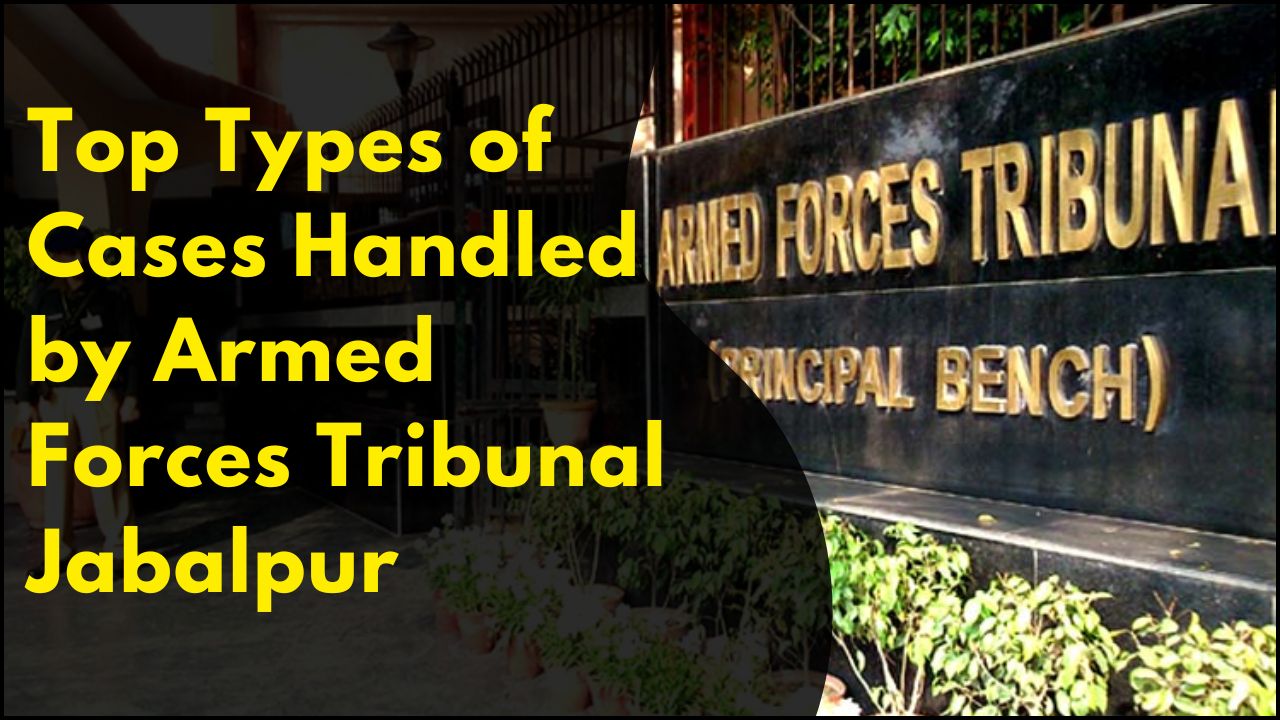
The Armed Forces Tribunal (AFT) plays a vital role in delivering justice to military personnel. The structure of AFT has been designed to offer quick and fair decisions in matters related to court-martials and military law. AFT benches are located across different regions of India to ensure that service members can easily access justice.
Each bench holds specific territorial jurisdiction, and the powers of the Tribunal are similar to those of a criminal court under Indian law. The Tribunal has the authority to review, later, or reverse decisions made by court martials, and can even offer bail, parole, or a suspension of sentence when justified.
Table of Contents
Structure and Jurisdiction of the AFT
- Tribunal’s Purpose
- AFT handles appeals related to orders, decisions, findings, or sentences passed by a court-martial.
- Any matter that is connected or incidental to court martial cases can also be reviewed.
- Appeal Process
- An aggrieved individual may appeal in a form, manner, and within a time frame as prescribed by the rules.
- Appeals can be made against decisions that are legally flawed or unjust.
- Powers of the Tribunal
- The Tribunal can act on:
- Illegal or unsustainable findings.
- Errors in the application of law.
- Irregularities in the trial process.
- If no miscarriage of justice is found, the appeal may be dismissed.
- The Tribunal can act on:
- Modification of Court Martial Decisions
- AFT can:
- Substitute a different charge that could have been lawfully considered by the court-martial.
- Pass a new sentence for the substituted offence.
- Change an excessive, illegal, or unjust sentence.
- AFT can:
- Sentencing Powers
- Tribunal may:
- Remit part or full sentence, with or without conditions.
- Reduce the punishment.
- Convert the punishment to a lesser one.
- Increase the sentence, if deemed necessary.
- Tribunal may:
- Release and Bail Powers
- AFT may:
- Grant bail with or without conditions.
- Release the appellant on parole.
- Suspend imprisonment.
- Pass any order deemed fit.
- AFT may:
- Criminal Court Powers
- To handle cases and jurisdiction, the Tribunal is regarded as a criminal court.
- It follows the Indian Penal Code and Code of Criminal Procedure, 1973, especially Chapter XXVI.
Territorial Jurisdiction of AFT Benches
The jurisdiction of each Regional Bench is determined by administrative orders from the Government of India. The AFT operates through multiple regional branches covering different parts of the country.
| Sl. No. | Bench | States Covered |
|---|---|---|
| 1. | Principal Bench | New Delhi |
| 2. | Chandigarh Bench | Punjab, Haryana, Himachal Pradesh, and U.T. of Chandigarh |
| 3. | Lucknow Bench | Uttar Pradesh and Uttarakhand |
| 4. | Kolkata Bench | West Bengal, Bihar, Jharkhand, Odisha, and U.T. of Andaman and Nicobar Islands |
| 5. | Guwahati Bench | North Eastern Region |
| 6. | Mumbai Bench | Maharashtra and Gujarat |
| 7. | Kochi Bench | Kerala, Karnataka, and Lakshadweep |
| 8. | Chennai Bench | Tamil Nadu, Andhra Pradesh, and U.T. of Puducherry |
| 9. | Jaipur Bench | Rajasthan |
| 10. | Jabalpur Bench | Madhya Pradesh and Chhattisgarh |
| 11. | Jammu Bench | Jammu and Kashmir |
Key Features of the Tribunal’s Role
- Access to Justice
- Service members do not need to travel far due to region-based benches.
- Regional benches help in the faster resolution of appeals.
- Legal Authority
- Tribunal decisions carry weight similar to criminal courts.
- Powers to review, modify, or reverse court martial orders make it a strong legal institution.
- Flexibility in Punishment
- Depending on the case, AFT can show leniency or strictness.
- Fairness is ensured by allowing reduction or enhancement of punishment.
- Appeal Rights
- Any person sentenced by a court-martial can appeal.
- Grounds for appeal include procedural error or questions of law.
- Multiple Relief Options
- Bail, parole, and sentence suspension add flexibility.
- Orders can be customized based on case requirements.
- Uniform Coverage
- Tribunal covers the entire nation through regional benches.
- Territorial jurisdiction ensures every area is legally covered.
Important Considerations
- Jurisdiction Orders
- Jurisdiction may change as per the Government of India notifications.
- Periodic administrative orders define regional boundaries.
- Legal Equivalence
- Tribunal is treated as a criminal court under Indian law for relevant purposes.
- Follows the Indian Penal Code and the Code of Criminal Procedure.
- Case Handling
- Appeals must be filed within prescribed time limits.
- Tribunal thoroughly examines legal and procedural grounds.
- Support to Personnel
- Designed to protect the rights of armed forces members.
- Promotes transparency and fairness in military justice.
End Notes
The Armed Forces Tribunal holds an essential place in India’s military legal system. It ensures justice is available to military personnel who seek to challenge court-martial decisions. With structured powers, regional reach, and authority equal to criminal courts, the Tribunal serves as a robust and fair platform for legal redress. The presence of multiple benches across the country allows service members to access legal relief without unnecessary delay or travel.





